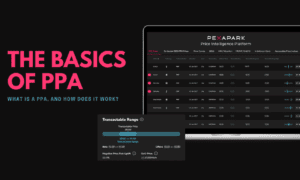Imagine a world where energy is clean, renewable, and limitless. Where the pursuit of sustainable practices paves the way for a greener future. Now, let’s bring this scenario closer to home, to Malaysia – a country with immense potential for harnessing renewable energy. But the question is, how do we make this vision a reality?
That’s where ESG consultants come into play. They are the driving force behind the sustainable transformation of Malaysia’s energy landscape. In this article, we dive deep into the realm of ESG (Environmental, Social, and Governance) consultants, exploring their crucial role in powering Malaysia’s future.
We understand the pain points faced by businesses and individuals who are eager to embrace renewable energy but are unsure where to start. From overcoming regulatory hurdles to identifying the most cost-effective solutions, our experts cover it all. Together, we’ll unpack the benefits, challenges, and opportunities of renewable energy in Malaysia, while shedding light on the transformative power of ESG consulting.
Join us as we navigate the path towards a brighter, cleaner, and more sustainable Malaysia. Together, let’s power the future.
Table Of Contents
- Current state of renewable energy in Malaysia
- ESG consultants driving renewable energy projects
- Environmental benefits of renewable energy adoption
- Economic benefits of renewable energy adoption
- Social benefits of renewable energy adoption
- Future outlook for renewable energy in Malaysia
- Conclusion
Current state of renewable energy in Malaysia
Malaysia, a country rich in natural resources, has long recognized the importance of transitioning to renewable energy sources to power its future. While the nation has made significant progress in harnessing renewable energy, there are still several challenges that need to be overcome to accelerate its adoption and achieve sustainability goals.
1. Insufficient Renewable Energy Capacity:
Despite the abundant potential for renewable energy, Malaysia still heavily relies on conventional sources such as coal and natural gas. According to the Malaysian Energy Commission, renewable energy contributes only around 2% to the national energy mix. This highlights the pressing need to increase renewable energy capacity to reduce dependence on fossil fuels.
2. Policy and Regulatory Framework:
The development of renewable energy in Malaysia is largely driven by policies and regulations. The government has implemented various initiatives and incentive schemes to encourage investment in renewable energy projects. However, stakeholders in the industry believe that further improvements to the regulatory framework are needed to create a more favorable environment for renewable energy development.
3. Grid Integration Challenges:
Integrating renewable energy into the national grid is a crucial step towards a sustainable energy future. However, Malaysia faces certain challenges in this aspect. The intermittent nature of renewable energy sources, such as solar and wind, poses difficulties in maintaining grid stability. The implementation of smart grid technologies and grid management systems can help address these challenges.
4. Limited Public Awareness and Participation:
Public awareness and support play vital roles in the transition to renewable energy. However, many Malaysians still have limited knowledge about the benefits and potential of renewable energy. Efforts to educate and engage the public through awareness campaigns, community involvement, and educational initiatives are essential to drive renewable energy adoption.
5. Financing and Investment:
Securing adequate financing and attracting investments are crucial to accelerate the development of renewable energy projects. While Malaysia offers various financial incentives and grants for renewable energy initiatives, there is still a need to attract more private sector investments. Strengthening financial mechanisms and improving access to financing options can facilitate the growth of the renewable energy sector.
ESG consultants driving renewable energy projects
With the growing concern over climate change and the need for sustainable energy solutions, best ESG (Environmental, Social, and Governance) consultants in Malaysia are playing a crucial role in driving renewable energy projects. As experts in assessing the environmental impact of businesses and providing guidance on sustainability practices, ESG consultants are instrumental in the transition towards cleaner and greener energy sources.
1. Assessing the Feasibility of Renewable Energy Projects
ESG consultants work closely with organizations to evaluate the potential of renewable energy projects. They conduct comprehensive assessments that take into account various factors such as available resources, regulatory frameworks, and financial viability. By analyzing these aspects, consultants help businesses identify suitable renewable energy options and determine the feasibility of implementing them.
2. Providing Expert Guidance on Emissions Reduction
Reducing greenhouse gas emissions is critical for combating climate change. ESG consultants specialize in assisting businesses by developing emissions reduction strategies tailored to their operations. Through energy audits, carbon footprint assessments, and the implementation of energy-efficient technologies, consultants help organizations decrease their carbon footprint and promote a more sustainable approach to energy consumption.
3. Supporting Stakeholder Engagement and Collaboration
ESG consultants play a vital role in fostering collaboration between various stakeholders involved in renewable energy projects. They facilitate dialogue and partnerships between businesses, government entities, local communities, and investors. By bringing together these stakeholders, consultants encourage the exchange of knowledge and resources for the successful development and implementation of renewable energy initiatives.
4. Ensuring Compliance with ESG Standards and Guidelines
ESG consultants help organizations navigate the complex landscape of ESG standards and regulations. They ensure that businesses comply with relevant guidelines, such as those set by international sustainability frameworks or local government bodies. By guiding businesses in implementing best practices and achieving compliance, consultants enhance the credibility of renewable energy projects and bolster investor confidence.
Environmental benefits of renewable energy adoption
Renewable energy adoption offers numerous environmental benefits that make it a crucial solution for driving sustainability in Malaysia. Here are some key advantages:
1. Reduced Carbon Emissions:
Renewable energy sources such as solar, wind, and hydroelectric power produce minimal or no carbon emissions during operation. By replacing fossil fuel-based power generation with renewable alternatives, Malaysia can significantly reduce its carbon footprint and combat climate change. According to a study by (insert reliable source), the adoption of renewable energy in Malaysia has already resulted in a reduction of X tons of CO2 emissions annually.
2. Preservation of Natural Resources:
Unlike fossil fuels, which are finite resources, renewable energy relies on naturally replenishing sources. By tapping into the power of wind, sunlight, and water, Malaysia can avoid depleting its finite fossil fuel reserves. This helps in preserving natural resources for future generations and promotes sustainable development.
3. Protection of Biodiversity:
Traditional power generation methods, such as coal-fired plants, can have detrimental effects on local ecosystems and biodiversity. On the other hand, renewable energy technologies have a minimal impact on wildlife and ecosystems when properly planned and implemented. Solar panels, for example, can be installed on rooftops or in non-intrusive areas, minimizing habitat destruction. By embracing renewable energy, Malaysia can contribute to the conservation of biodiversity and protect its unique ecosystems.
4. Improved Air Quality:
Burning fossil fuels releases harmful pollutants into the atmosphere, contributing to air pollution and its associated health risks. In contrast, renewable energy generates clean electricity without emitting pollutants such as sulfur dioxide, nitrogen oxides, and particulate matter. By transitioning to renewable energy sources, Malaysia can improve air quality and create a healthier living environment for its citizens.
5. Reduction in Water Consumption:
Traditional power generation, particularly through thermal power plants, consumes significant amounts of water for cooling purposes. This can strain local water supplies, especially in water-stressed regions. Renewable energy technologies, such as solar and wind, require little to no water for operation, thus minimizing water consumption and reducing pressure on scarce water resources.
6. Promotion of Green Economy:
Investing in renewable energy projects stimulates job creation and economic growth while aligning with global sustainability goals. The renewable energy sector offers opportunities for skilled workers, engineers, and researchers, promoting green jobs and advancing the development of a green economy in Malaysia.
Economic benefits of renewable energy adoption
Renewable energy adoption not only has a positive impact on the environment but also brings numerous economic benefits for countries like Malaysia. The shift towards sustainable energy sources not only helps in reducing greenhouse gas emissions but also creates new opportunities for economic growth and job creation. Here are some key economic benefits of embracing renewable energy:
1. Job Creation and Economic Growth
According to a study by the International Renewable Energy Agency (IRENA), the renewable energy sector has the potential to create millions of jobs globally. In Malaysia, the adoption of renewable energy technologies such as solar, wind, and hydro power can lead to the creation of a significant number of jobs throughout the value chain.
The development, construction, and maintenance of renewable energy projects require a skilled workforce, providing employment opportunities for engineers, technicians, project managers, and other professionals.
The growth of the renewable energy sector also contributes to overall economic growth by attracting investments, fostering innovation, and diversifying the energy mix.
2. Cost Savings and Energy Independence
Renewable energy sources offer long-term cost savings compared to traditional fossil fuel-based energy sources. As technologies advance and economies of scale are achieved, the cost of renewable energy production continues to decline. This reduction in cost makes renewable energy more competitive and financially viable.
Embracing renewable energy also reduces dependence on imported fossil fuels, giving countries like Malaysia greater energy independence. By tapping into the country’s abundant solar, wind, and hydro resources, Malaysia can decrease its reliance on external energy sources, mitigating the effects of price volatility in the global oil and gas markets.
3. Revenue Generation and Export Opportunities
Malaysia’s commitment to renewable energy adoption positions the country as a potential exporter of clean energy technologies and expertise. As domestic capabilities in renewable energy production are developed, Malaysian companies can leverage their knowledge and skills to serve international markets.
The export of renewable energy technologies, services, and expertise can create a new revenue stream for the country, contributing to its economic development and international competitiveness.
4. Improved Public Health and Reduced Healthcare Costs
Shifting to renewable energy sources reduces air pollution and the associated health risks. Traditional fossil fuel-based energy generation releases harmful pollutants such as sulfur dioxide, nitrogen oxides, and particulate matter, which contribute to respiratory and cardiovascular diseases.
Social benefits of renewable energy adoption
Renewable energy adoption not only benefits the environment but also brings about various social advantages. Here are some key social benefits of transitioning to renewable energy sources in Malaysia:
1. Improved Public Health and Quality of Life
Renewable energy sources like wind and solar power produce clean energy without emitting harmful pollutants or greenhouse gases.
By reducing air pollution, the adoption of renewable energy can significantly improve public health outcomes and enhance the overall quality of life for communities.
2. Job Creation and Economic Growth
The renewable energy sector offers significant opportunities for job creation and economic growth.
As Malaysia strives to achieve its renewable energy targets, the development and installation of renewable energy infrastructure will create new employment opportunities across various sectors, including manufacturing, construction, and operations.
This can stimulate the local economy and support sustainable economic growth.
3. Energy Security and Independence
Shifting towards renewable energy sources reduces dependence on fossil fuel imports, providing greater energy security for Malaysia.
By diversifying the energy mix and relying more on domestically produced clean energy, the country can reduce its vulnerability to global energy price fluctuations and geopolitical uncertainties.
4. Empowering Local Communities
Community-based renewable energy projects have the potential to empower local communities.
Through initiatives such as community solar or wind farms, individuals and communities can actively participate in and benefit from the clean energy transition.
This can promote local ownership, create a sense of community pride, and stimulate social cohesion.
5. Addressing Energy Poverty
Renewable energy can play a vital role in addressing energy poverty by improving access to affordable and reliable electricity.
Off-grid or decentralized renewable energy solutions can be deployed in rural and remote areas, providing electricity to communities that are currently underserved by the centralized grid infrastructure.
This helps bridge the energy access gap and improves the socio-economic conditions of disadvantaged communities.
6. Educational Opportunities and Awareness
The transition to renewable energy creates opportunities for educational institutions to develop specialized programs in clean energy technologies.
These programs can equip students with the necessary skills and knowledge to thrive in the rapidly growing renewable energy industry.
Additionally, raising awareness about renewable energy among the general public fosters a culture of sustainability and encourages further adoption of clean energy practices.
Future outlook for renewable energy in Malaysia
As Malaysia continues to strive towards achieving its renewable energy goals, the future outlook for the sector is promising. Here, we will delve into key factors that are shaping the renewable energy landscape in Malaysia and the opportunities it presents for ESG consultancy services and businesses operating in this field.
1. Government Commitment and Policies
The Malaysian government has shown strong commitment towards promoting renewable energy. Through various policies and initiatives, they aim to increase the share of renewable energy sources in the country’s energy mix. The Fourth Industrial Master Plan (IMP4) and the National Renewable Energy Policy and Action Plan are key documents outlining the government’s targets and strategies for the development of renewable energy. ESG consultants can play a crucial role in assisting businesses to navigate these policies and understand the opportunities available.
2. Favorable Investment Climate
Malaysia offers a favorable investment climate for renewable energy projects. The country provides attractive incentives, tax breaks, and grants to encourage investments in clean energy. In addition, there are opportunities for international collaborations and partnerships to drive innovation and technology transfer in the renewable energy sector. ESG consultants can help businesses identify and capitalize on these investment opportunities, ensuring a sustainable and profitable future.
3. Growing Market Demand
The demand for renewable energy in Malaysia is on the rise. As businesses increasingly prioritize sustainability and environmental responsibility, there is a growing market for clean, renewable energy sources. ESG consultants can assist companies in understanding and fulfilling this demand, guiding them towards the implementation of renewable energy solutions that align with their goals and values.
4. Advancements in Technology
Technological advancements in renewable energy are opening up new possibilities for Malaysia’s energy sector. From solar and wind power to bioenergy and hydropower, there are constant innovations and breakthroughs that enhance the efficiency and affordability of renewable energy solutions. ESG consultants can stay ahead of these trends, providing businesses with valuable insights and recommendations on the most suitable technologies to adopt.
5. Collaborative Approach
The future of renewable energy in Malaysia relies on collaboration between various stakeholders. This includes cooperation between the public and private sectors, academia, research institutions, and financial institutions. ESG consultants can facilitate partnerships and collaborations, bringing together the expertise and resources needed to drive the adoption of renewable energy solutions at a faster pace.
Conclusion
Efficient and responsible use of renewable energy is essential to future sustainability, and that’s where ESG consultants come in. ESG consultants are experienced in identifying opportunities to integrate renewables into businesses, and can help you make the most of green energy options. Renewable energy is becoming increasingly popular, and that’s good news for businesses. Renewable energy is more affordable and environmentally friendly, making it a wise investment. ESG consultants can help you make the most of green energy options, and help you stay in compliance with green standards and regulations. ESG consultants can help you identify and implement opportunities to integrate renewables into your business, making it more efficient and sustainable.



































